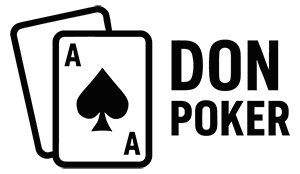By now, you’ve learned the rules, the rankings, the strategy, and (hopefully) how not to torch your bankroll in 15 minutes. That’s a win.
But here’s the truth most poker guides won’t say out loud:
You’re going to screw up. Probably a lot. And that’s fine.
Poker is a game of incomplete information. That means you’re always making decisions with a little uncertainty. It’s not about being right every time—it’s about making better choices than the people across the table.
Don’t Obsess Over Results (Yet)
You’re going to win hands you shouldn’t and lose hands you played perfectly. That’s the nature of the game. Don’t chase results—chase good decisions. Over time, those decisions stack up. And that’s when the results follow.
Build Good Habits Early
- Fold more.
- Play in position.
- Think before you act.
- Review hands (especially the ones that hurt).
- Take breaks. Tilt is real.
You’re Always Learning
Even the best players in the world still study the game. New strategies emerge. Meta shifts. Human behavior remains hilarious and unpredictable.
The moment you think you’ve “solved” poker? That’s when the game humbles you.
Final Beginner Checklist
- ✅ Understand the rules and hand rankings
- ✅ Know how to play a hand from pre-flop to showdown
- ✅ Respect position
- ✅ Manage your bankroll
- ✅ Avoid common rookie mistakes
- ✅ Use learning tools and communities
- ✅ Remember: It’s a marathon, not a sprint
Last Words from Don
If you’ve made it through this whole guide, you’re already ahead of 90% of casual players.
Keep showing up. Keep learning. Keep folding that trash hand you really want to play. Poker rewards patience, discipline, and curiosity. It punishes ego, tilt, and chasing losses.
So take a seat, buy some chips, and make better decisions than the person next to you.
Welcome to the table.
— Don
